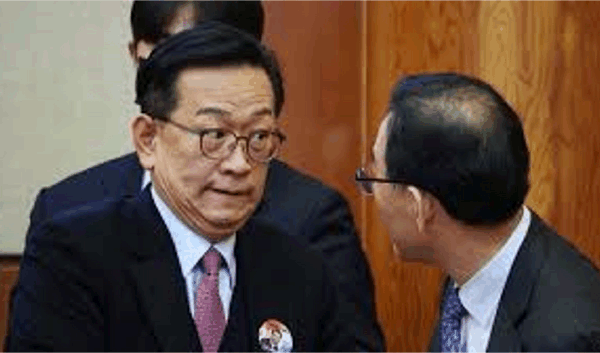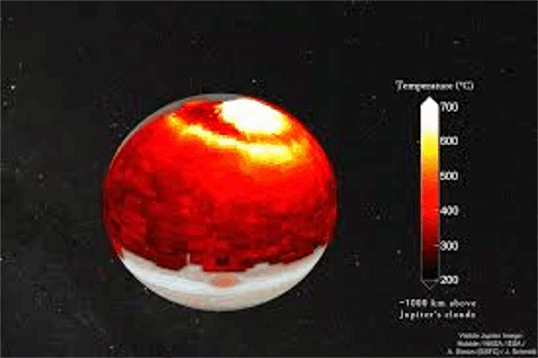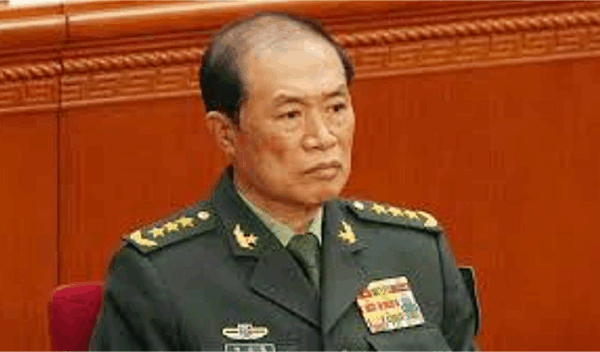포도 수확이 끝나자 중국 와인은 리버랜드와 리버리나 재배자들을 돕기에는 너무 늦게 유예를 받았습니다.
ABC 시골 / Eliza Berlage 및 Emily Doak 작성
어제 오후 5시 50분에 게시됨, 7시간 전7시간 전에 업데이트됨
포도 재배자 Jack Papageorgiou
Papageorgiou 씨는 호주가 동남아시아의 새로운 시장에 부응하기 위해 밝은 빨간색에 집중해야 한다고 말했습니다. (ABC 농촌: 제시카 슈레머)
링크 복사링크가 복사되었습니다.
기사 공유
중국의 와인 관세 해제 결정은 수확자들이 올해 농작물을 수확하기 위해 무성한 포도나무 사이를 굴러다니는 동안 농부들에게 재정적 구제를 제공하기에는 너무 늦게 나올 것입니다.
많은 재배자들은 이미 1970년대만큼 낮은 가격을 받는 대신 포도를 땅에 버리거나 포도나무에 남겨두기로 결정했습니다.
중국 당국은 호주 와인에 대한 220%의 관세가 더 이상 필요하지 않다는 임시 결정을 발표했지만 업계는 위기를 해결하기 위해 시장에 복귀할 것으로 보지 않습니다.
각각 최대 365,000리터의 와인을 보관할 수 있는 우뚝 솟은 크림색과 은색 탱크로 구성된 “탱크 농장”은 호주 최대 포도 생산 지역인 사우스 오스트레일리아의 리버랜드와 뉴 사우스 웨일즈의 리베리나에 그림자를 드리우고 있습니다.
포도원으로 둘러싸인 대형 와인 탱크와 건물을 보여주는 드론 이미지
NSW 그리피스에 있는 Warburn Estate는 호주 내륙 와인 지역의 많은 탱크 농장 중 하나입니다.(제공: Facebook)
올해 수확한 과일을 분쇄하기 위해 지하실 직원이 레버를 당기는 동안 B-더블 트럭은 와이너리 계근대에 포도가 줄지어 쌓여 있습니다.
그러나 누가 와인을 구입할 것인지, 아니면 저장 공간이 20억 리터 이상 늘어나게 될 것인지에 대한 의문이 있습니다.
이는 Cooltong에 본사를 둔 포도 재배자 Jack Papageorgiou가 50년 이상 업계에 종사하면서 절실히 인식하고 있는 현실입니다.
“중국인들은 우리 탱크에 수백만 리터의 와인이 있다는 것을 알고 있기 때문에 가능한 한 최고의 제안을 받으려고 노력할 것이라고 확신합니다”라고 그는 말했습니다.
중국이 호주로부터 수입을 재개하더라도 71세의 그는 업계가 계속해서 다른 시장에 맞춰야 한다고 단호하게 말했습니다.
남호주 리버랜드의 포도원을 드론으로 촬영한 사진입니다.
호주는 최대 와인 수출국 중 하나이지만 대량 와인 가격은 가장 낮습니다. (ABC 뉴스: 스티브 오피)
위험 감소
호주산 와인을 덜 구매하는 국가는 중국뿐만이 아닙니다.
ABARES에 따르면 다른 여러 국가에서도 호주의 수출이 감소했다고 보고했는데, 그 중 영국은 2천만 리터, 미국은 1,300만 리터가 감소했습니다.
호주 최대 상업 와이너리 중 하나인 The Wine Group의 관리자는 공급이 “수요와 완전히 동떨어져 있다”고 말하면서 이러한 불편한 진실을 숨기지 않았습니다.
흰 깃이 달린 셔츠를 입은 밝은 피부, 금발 머리의 여성 브리짓 놀란(Brigid Nolan)이 나무 찬장 앞에 앉아 있습니다.
놀란 씨는 이전에 중국이 호주 와인에 지불한 높은 가격은 지속 불가능하다고 말했습니다. (ABC 뉴스: 제임스 웨이클린)
와인의 재고 대 판매 비율을 재조정하는 데는 최소 2년이 걸릴 수 있습니다.
Rabobank 분석가 Pia Piggot의 모델링에 따르면 과잉 공급을 해소하려면 수출량이 연간 8천만 리터 증가해야 합니다.
그 사이 재배자와 업계 대표자들은 문제가 더 심화되는 것을 막기 위해 새로운 포도나무 재배에 대한 유예를 촉구했습니다.
Riverina Winemakers Association의 Andrew Calabria 회장은 특히 중국이 경제 위기에 직면한 상황에서 호주산 와인을 중국에서 다시 판매하기 어려울 것이라고 말했습니다.
검은 셔츠를 입은 남자가 작은 벽에 앉아 카메라를 향해 미소를 짓고 있다
칼라브리아 씨는 호주가 칠레, 프랑스, 남아프리카산 와인으로 인해 시장 점유율을 잃었다고 말했습니다.(제공: Andrew Calabria)
“우리가 재건하려면 소비자 교육이 [필요할 것입니다]”라고 그는 말했습니다.
“우리가 와인이 모두 흡수되는 것을 보기 시작하는 것은 스위치를 톡톡 두드리는 것이 아닐 것입니다.”
칼라브리아 씨는 일부 와이너리가 중국에서 폐쇄된 이후 다른 시장으로 전환했으며 동일한 강도로 수출을 꺼릴 수 있다고 말했습니다.
“어떤 사람들은 ‘이전에는 위험했고 다시는 그런 위험을 감수하지 않을 것입니다’라고 말할 수도 있습니다.”라고 그는 말했습니다.
변화된 시장
대부분의 국가와 마찬가지로 중국 소비자도 와인을 덜 마시고 있습니다.
ABARES에 따르면 중국의 수입 와인 시장 규모는 5년 전의 7,600만 케이스에서 2,800만 케이스로 감소하여 5년 전의 3분의 1로 줄었습니다.
시장 재진입에 관해 올해 초 열린 업계 워크숍에서 남호주 와인 산업 협회의 잉카 리(Inca Lee) 대표는 관세 이전에 중국 수요가 바뀌고 있다고 말했습니다.
잉카 리가 밖에 서서 카메라를 향해 미소 짓고 있다
Lee 씨는 중국 소비자들이 여전히 호주 와인에 대해 좋은 인식을 갖고 있다고 말했습니다. (ABC 사우스 이스트 SA: 엘시 아다모)
Australian Grape and Wine의 CEO인 Lee McLean은 중국이 여전히 중요한 시장이 되겠지만 예전과 같지는 않을 것이라고 말했습니다.
그는 “12억 달러 규모의 시장으로 다시 돌아올 가능성은 희박하다”고 말했다.
Wine Australia의 마케팅 통찰력 관리자인 Peter Bailey는 중국 소비자의 취향도 거의 독점적인 굵은 빨간색에서 더 많은 흰색과 스파크를 포함하도록 확대되었다고 말했습니다.
China wine reprieve too late to help Riverland and Riverina growers as grape harvest ends
/ By Eliza Berlage and Emily Doak
Posted Yesterday at 5:50pm, updated 7h ago7 hours ago
abc.net.au/news/china-wine-tariff-interim-decision-riverland-riverina-grapes/103580590Copy link
Link copiedShare article
A decision on lifting China’s tariffs on wine will come too late to provide financial relief for farmers as harvesters roll through bushy vines to collect this year’s crop.
Many growers have already decided to dump their grapes on the ground or leave them on the vines rather than be paid prices as low as the 1970s.
Chinese authorities have announced an interim decision that tariffs of 220 per cent on Australian wine are no longer necessary, but the industry doesn’t see a return to the market fixing the crisis.
“Tank farms” of towering cream and silver tanks, each holding as much as 365,000 litres of wine, cast shadows over Australia’s largest grape producing regions — South Australia’s Riverland and the Riverina in New South Wales.
B-double trucks piled high with grapes queue at the winery weighbridge as cellar hands pull levers to crush the fruit of this year’s harvest.
But there is a question of who will buy the wine, or whether it will just add to the more than two billion litres in storage.
It is a reality Cooltong-based grape grower Jack Papageorgiou is acutely aware of, having been in the industry for more than 50 years.
“The Chinese know we have millions of litres of wine in the tanks, so I’m sure they will try to get the best offer that they can,” he said.
Even if China resumes its imports from Australia, the 71-year-old is adamant that the industry must continue catering to other markets.
Reducing the risk
China is not the only country buying less Australian wine.
Several other countries have also reported declining exports from Australia, with the UK down 20 million litres and the United States down 13 million litres, according to ABARES.
The manager of one Australia’s largest commercial wineries, The Wine Group, has made no secret of this inconvenient truth, stating that supply is “completely out of touch with demand”.
Rebalancing the stock-to-sales ratio of wine could take at least two years.
Modelling by Rabobank analyst Pia Piggot suggests exports need to increase by 80 million litres a year to drain the glut.
In the meantime, growers and industry representatives have called for a moratorium on new vine plantings to stop the issue spiralling further.
Riverina Winemakers Association president Andrew Calabria said it would be hard to get Australian wine back on the shelves in China, especially with the nation facing an economic crisis.
“Consumer education [will be needed] in order for us to rebuild,” he said.
“It’s not going to be the flick of a switch where we start to see all that wine soaked up.”
Mr Calabria said some wineries had pivoted to other markets since being locked out of China and could be unwilling to export with the same intensity.
“Some people might say ‘that was a risk before and I’m not going to take that risk again’,” he said.
Changed market
Like most countries, Chinese consumers are drinking less wine.
In China the imported wine market has dropped to a third of the size it was five years ago, falling from 76 million cases to 28 million cases, according to ABARES.
At industry workshops held earlier this year about re-entering the market, South Australian Wine Industry Association chief executive Inca Lee said Chinese demand was shifting before the tariffs.
Australian Grape and Wine chief executive Lee McLean said China would still be an important market but it wouldn’t be the same as it was.
“The likelihood of us getting back to that $1.2 billion market is slim,” he said.
Wine Australia marketing insights manager Peter Bailey said China’s consumer tastes had also broadened, from almost exclusively bold reds, to include more whites and sparkling wines.
Despite the changes, he said China’s regard for Australian wine hasn’t waned.
“Australia is still very well regarded in the market but developing those relationships will be crucial,” Mr Bailey said.
ABC Rural RoundUp newsletter
Stories from farms and country towns across Australia, delivered each Friday.
Your information is being handled in accordance with the ABC Privacy Collection Statement.
This site is protected by reCAPTCHA and the Google Privacy Policy and Terms of Service apply.
Posted Yesterday at 5:50pm, updated 7h ago










